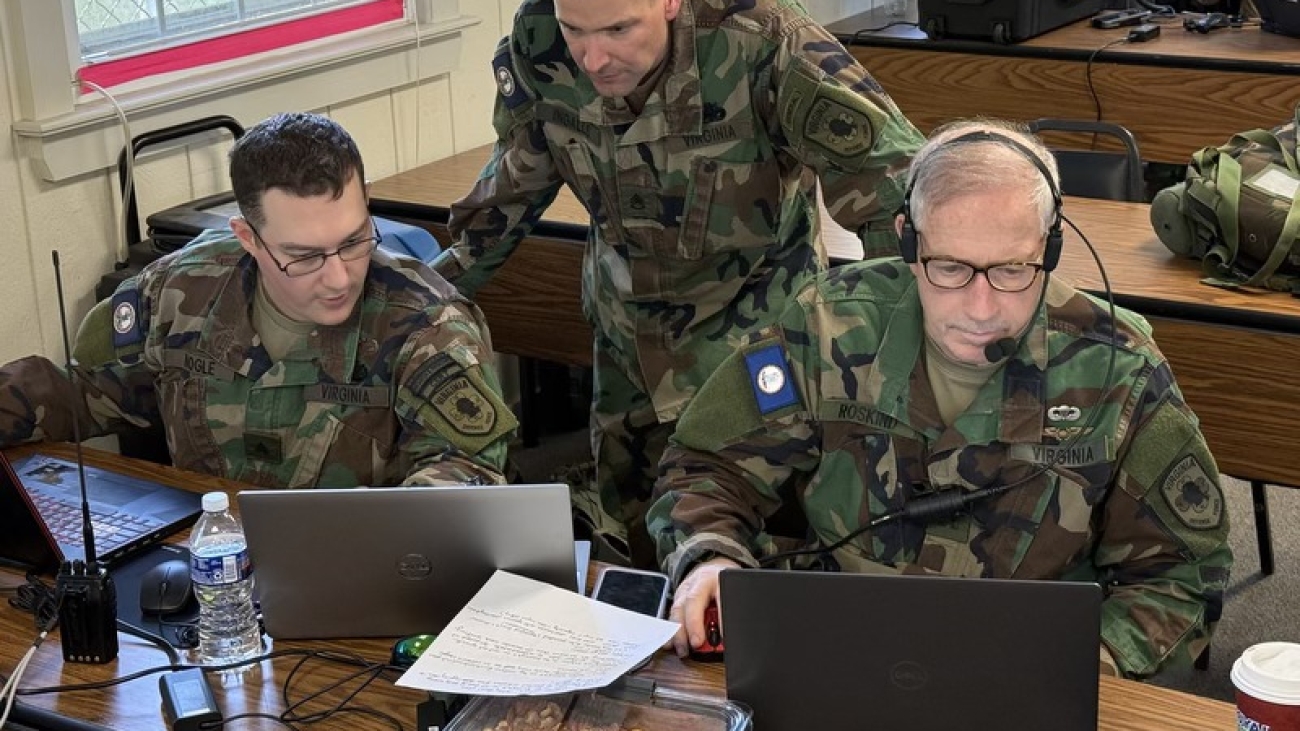The Virginia Defense Force recently gathered at Fort Pickett for its semiannual Multi-Unit Training Assembly, a multi-day drill that brings every unit of the organization together for synchronized training, readiness evaluations, and full immersion in military life. Held from October 17–19, 2025, this MUTA once again saw soldiers return to barracks living, long training days, and intensive scenario-driven exercises designed to sustain the VDF’s high standard of preparedness. The MUTA is one of the most important events on the VDF calendar, providing an opportunity for soldiers from across the Commonwealth to train as one cohesive force while ensuring their ability to support the Virginia National Guard as well as State Agencies during statewide emergencies.
This year’s assembly centered on a comprehensive evaluation of equipment, sustainment packages, and administrative readiness, ensuring that every unit remained capable of rapid mobilization should the Commonwealth call upon them. The highlight of the weekend was the Highland Guard winter storm exercise, a multi-layered scenario that placed company-grade officers and noncommissioned officers in command roles under simulated severe winter weather conditions. The exercise was designed to refine the VDF’s mission-essential task list and strengthen the organization’s ability to support emergency operations during natural disasters.
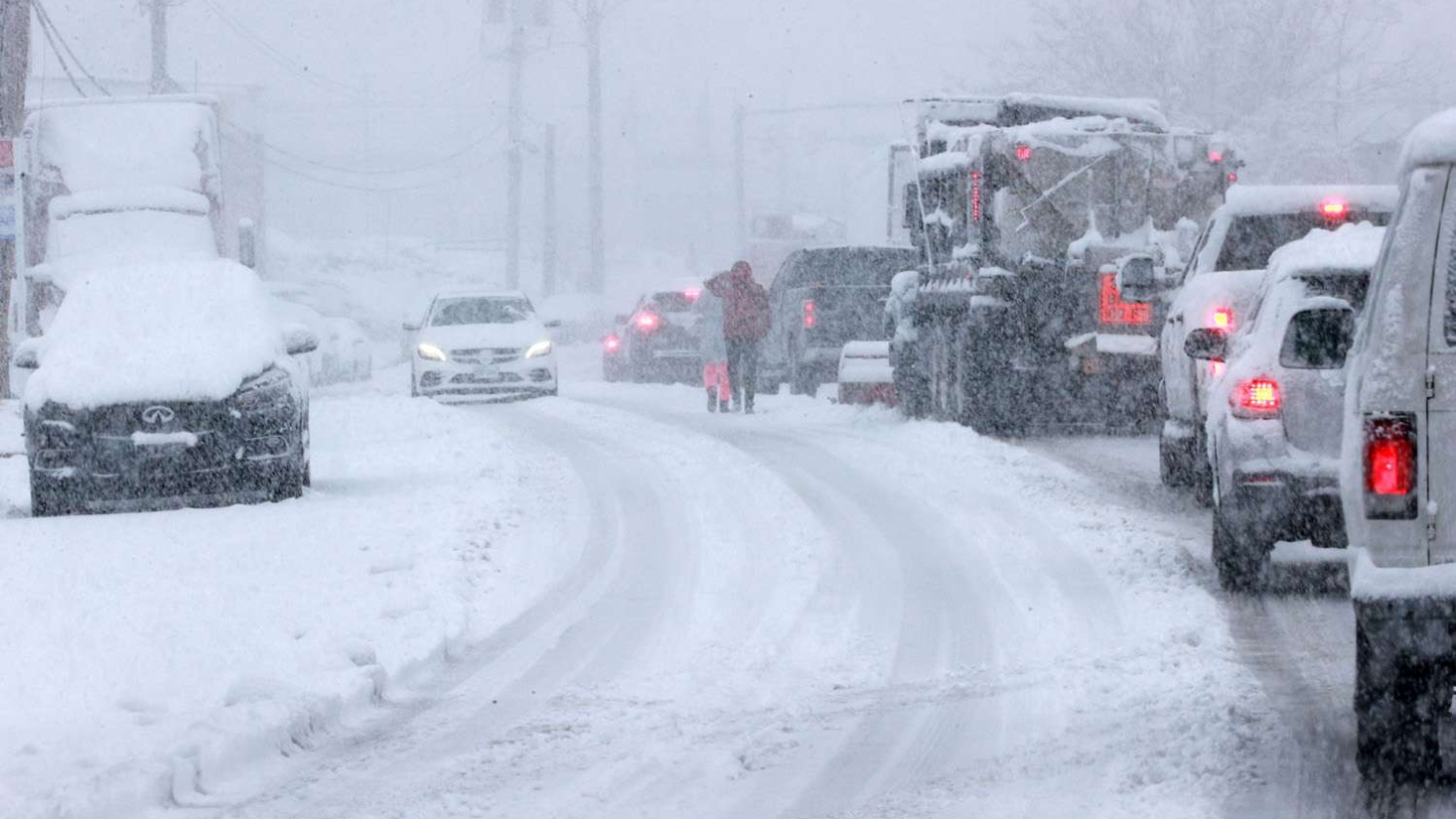
During the past few years, winter storms have struck Virginia with increasing severity, challenging response capabilities across the Commonwealth. In January 2025 a massive system dumped up to a foot of snow in Northern Virginia while down south freezing rain and sleet piled up, prompting activation of the Virginia Defense Force and the Virginia National Guard to assist with road clearing and power‐restoration logistics. In February 2025, another storm produced 7-10 inches of snow in the Tidewater region and caused prolonged sub-freezing temperatures, pushing localities with normally mild winters into major emergency response mode with VDF personnel activated for administrative and sustainment tasks.
Brigadier General (VA) Rich Diddams, commanding general of the VDF, described Highland Guardian as a clear demonstration of the force’s commitment to operational excellence and its ability to align with both state and National Guard partners. He emphasized that by putting junior officers and NCOs into leadership roles under realistic winter storm stressors, the VDF was directly validating its ability to communicate effectively, manage logistics and sustainment operations, enforce access control, and make rapid decisions under pressure. According to Diddams, the exercise not only reaffirmed the VDF’s core capabilities but also strengthened its role within Virginia’s unified emergency response framework.
The administrative white cell supporting Highland Guardian crafted each scenario inject to create mission-specific challenges, forcing units to meet strict go/no-go criteria. These injects ensured that operational precision and readiness remained at the center of every decision. Major (VA) Michael Perini, the VDF’s G3 operations officer, explained that the exercise delivered tangible leadership development for company-grade officers and NCOs. Teams conducted deployments, established multi-channel communications, coordinated logistics distribution resource teams, and enforced access control at critical sites, all of which mirrored real-world emergency response requirements. The training reinforced adaptability, communication, and teamwork—core qualities needed for the VDF to operate effectively alongside the Virginia National Guard in times of crisis.
Throughout the weekend, company-grade officers led task forces and were responsible for real-time decision-making, while field grade officers acted as mentors, monitoring performance, maintaining documentation, and ensuring mission objectives were met. This structure created valuable leadership development opportunities while also strengthening internal coordination. After-action reviews at the end of the exercise highlighted strong performance across the board.
While the Highland Guard exercise formed the core of the MUTA, another major focus of the weekend was the continued advancement of the Virginia Defense Force’s cyber capabilities. The VDF maintains one of the most robust and capable cyber defense units within any State Defense Force in the nation, working side by side with the Virginia Army National Guard’s 91st Cyber Brigade. The 91st Cyber Brigade is the Army National Guard’s first and only cyber brigade, responsible for conducting Defensive Cyber Operations, Offensive Cyber Operations, and cyber readiness missions supporting local, state, federal, and international partners. Their mission set includes protecting critical infrastructure, defending government networks, countering cyber intrusions, and supporting U.S. Cyber Command initiatives.
During the MUTA, VDF cyber professionals conducted specialized training alongside their National Guard counterparts, focusing on network defense, vulnerability assessments, digital incident response, and threat mitigation scenarios. Their performance during the Cyber Fortress 25 Exercise—another joint mission with the Virginia National Guard—was recognized earlier this year when several VDF cyber soldiers received the Army Commendation Medal for their exemplary support. This collaboration continues to strengthen Virginia’s cyber readiness and reinforces the VDF’s position as a valued partner in the Commonwealth’s digital security infrastructure.
The weekend concluded with significant recognition for the VDF’s cyber mission. First Lieutenant (Va.) Kurt Luther accepted the 2025 Commonwealth Technology Award on behalf of the 31st Cyber Battalion for their cybersecurity and privacy initiatives supporting Virginia localities. Working alongside the 91st Cyber Brigade, the VDF conducted cybersecurity assessments for four cities, seven counties, and one town across the Commonwealth between January 2024 and May 2025. These missions helped local governments identify vulnerabilities, strengthen their networks, and improve their ability to protect sensitive data. The accolades, presented at the Commonwealth’s Innovative Technology Symposium, highlighted the critical contributions the VDF has made to statewide cyber defense.
Brigadier General Diddams noted that the value of the VDF’s cybersecurity mission lies in its direct impact on the safety and security of Virginia’s citizens. Their work ensures the continuity of essential services, protects personal data, and strengthens public trust in government networks. Whether securing communications for emergency response, working with state agencies, or preparing to counter sophisticated cyberattacks, the VDF’s cyber professionals play a vital role in safeguarding Virginia’s digital infrastructure.

Cyber defense has rapidly become one of the most important missions facing the United States. In recent years, China, Russia, and other nation-state actors have conducted increasingly aggressive digital attacks targeting federal systems, state governments, private industry, and critical infrastructure. Incidents such as the breach of sensitive U.S. Treasury Department and Russian-linked attempts to target water systems, power grids, and other essential services in the U.S. which illustrate a growing severe and life threatening threat. These attacks have underscored the reality that cyber warfare is no longer an emerging concern but a daily challenge that directly affects national security and public safety.
In response, State Defense Forces across the country—including the Texas State Guard, Louisiana State Guard, South Carolina State Guard, and many others—have expanded their cyber capabilities or established new cyber defense detachments to help protect state infrastructure. These state-level forces offer critical manpower and expertise, allowing the National Guard Cyber Protection Teams to focus on higher-level threats while State Defense Forces assist with local-level vulnerabilities and assessments. Major General Leon Lott, Commanding General of the South Carolina State Guard, recently discussed why cyber attacks represent the most serious threat facing South Carolina today. Despite the state’s history of destructive hurricanes and severe weather, he emphasized that cyber threats pose a more immediate danger to essential services such as hospitals, utilities, emergency communications, and government operations. His message underscores a broader national trend: cyber defense is becoming one of the defining missions of modern State Defense Forces.
The Virginia Defense Force’s latest Multi-Unit Training Assembly reflects this new reality. Whether preparing for natural disasters through winter storm exercises or defending the Commonwealth’s digital infrastructure, the VDF continues to evolve in response to the complex threats facing Virginia and the nation. Their readiness, professionalism, and ongoing collaboration with the Virginia National Guard demonstrate the increasingly vital role State Defense Forces play in the safety and security of American communities.
Members of the Virginia Defense Force conduct their semiannual Multi-Unit Training Assembly Oct. 17-19, 2025, at Fort Pickett, Virginia, with an emphasis on evaluation of organic equipment, sustainment packages and administrative readiness. The highlight of the weekend was the Highland Guard winter storm exercise designed to sharpen the VDF’s mission-essential task list skills needed for emergency response operations.
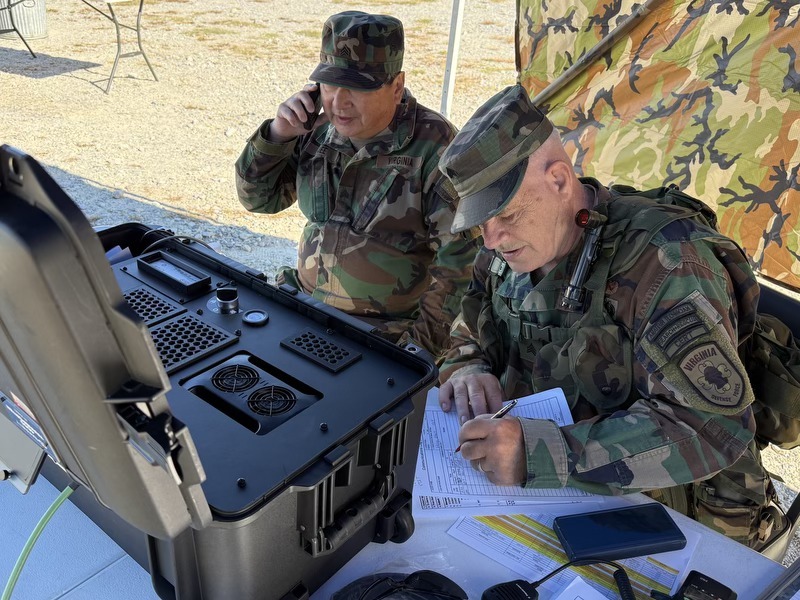
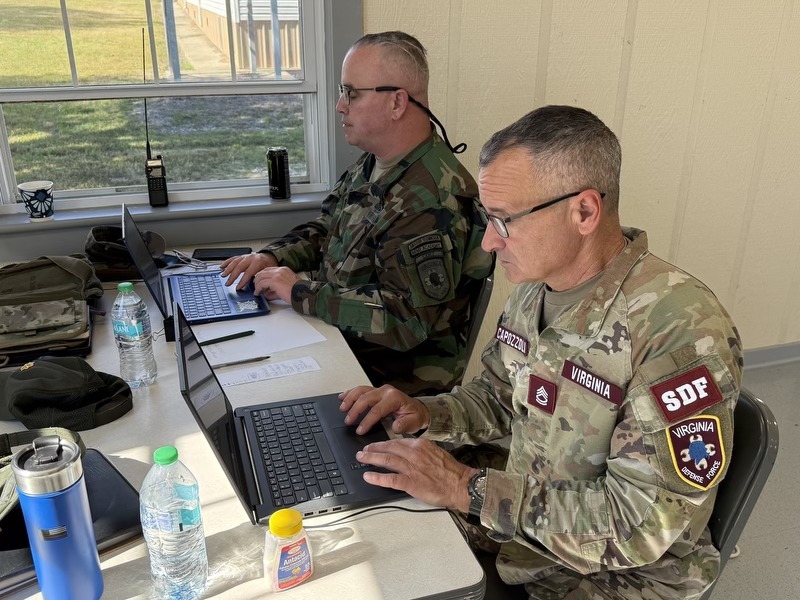
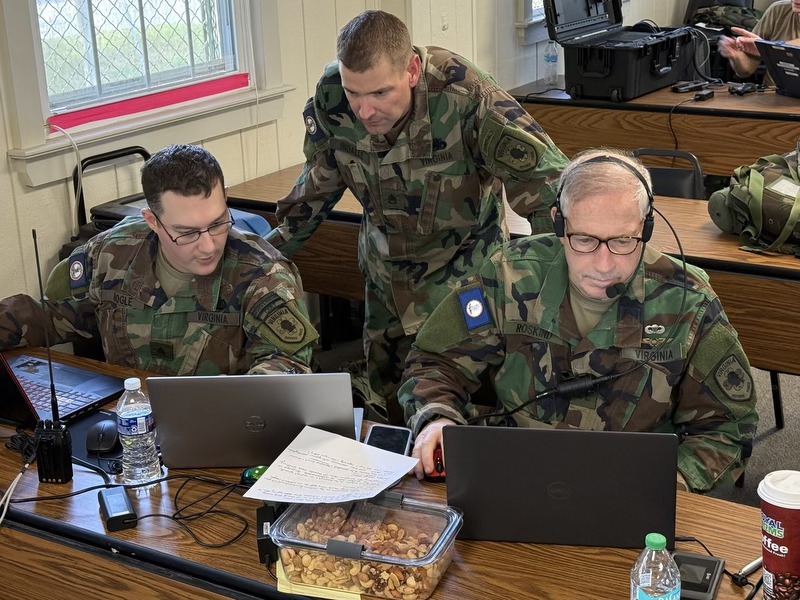
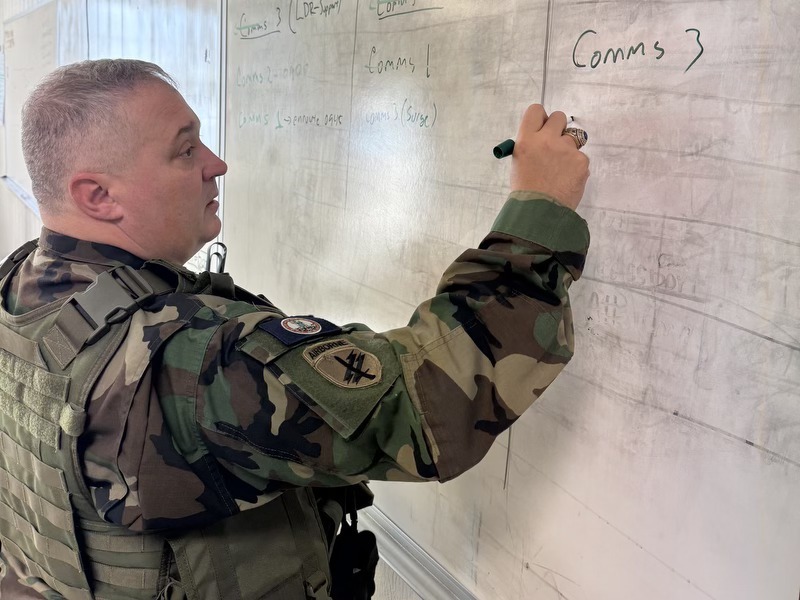
Virginia Defense Force cyber professionals conduct training during their semiannual Multi-Unit Training Assembly Oct. 17-19, 2025, at Fort Pickett, Virginia. They were also recognized with a Commonwealth Technology Award and individuals received the Army Commendation Medal for their support to the Virginia Army National Guard’s Cyber Fortress 25 Exercise.
The following individuals earned the Army Commendation Medal for their Cyber Fortress 25 support: Warrant Officer 1 (Va.) Justin Centeno, Lt. Col. (Va.) John Congson, 1st Lt. (Va.) Phil Gorman,Chief Warrant Officer 2 (Va.) Nathan Haslim, Warrant Officer 1 (Va.) Michael Johnson, Spc. (Va.) Liam Kendall, Sgt. 1st Class (Va.) Nick Kuriger, Spc. (Va.) Ken Lee, 1st Lt. (Va.) Kurt Luther, Spc. (Va.) Tieu Luu, Chief Warrant Officer 2 (Va.) Joshua Ott, 1st Lt. (Va.) Fritz Sassine, 1st Sgt. (Va.) David Smith, Capt. (Va.) Gordon Steele and Spc. (Va.) Christopher Wilcher.
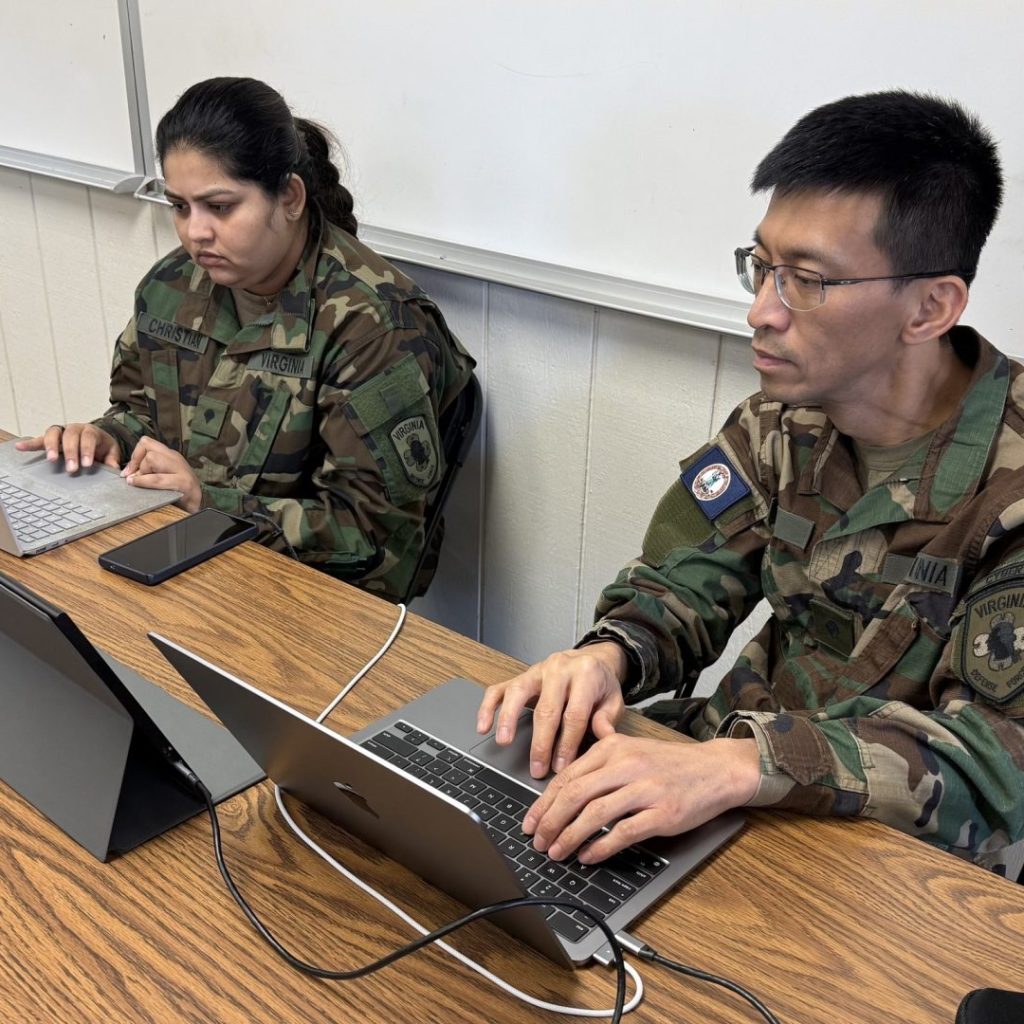
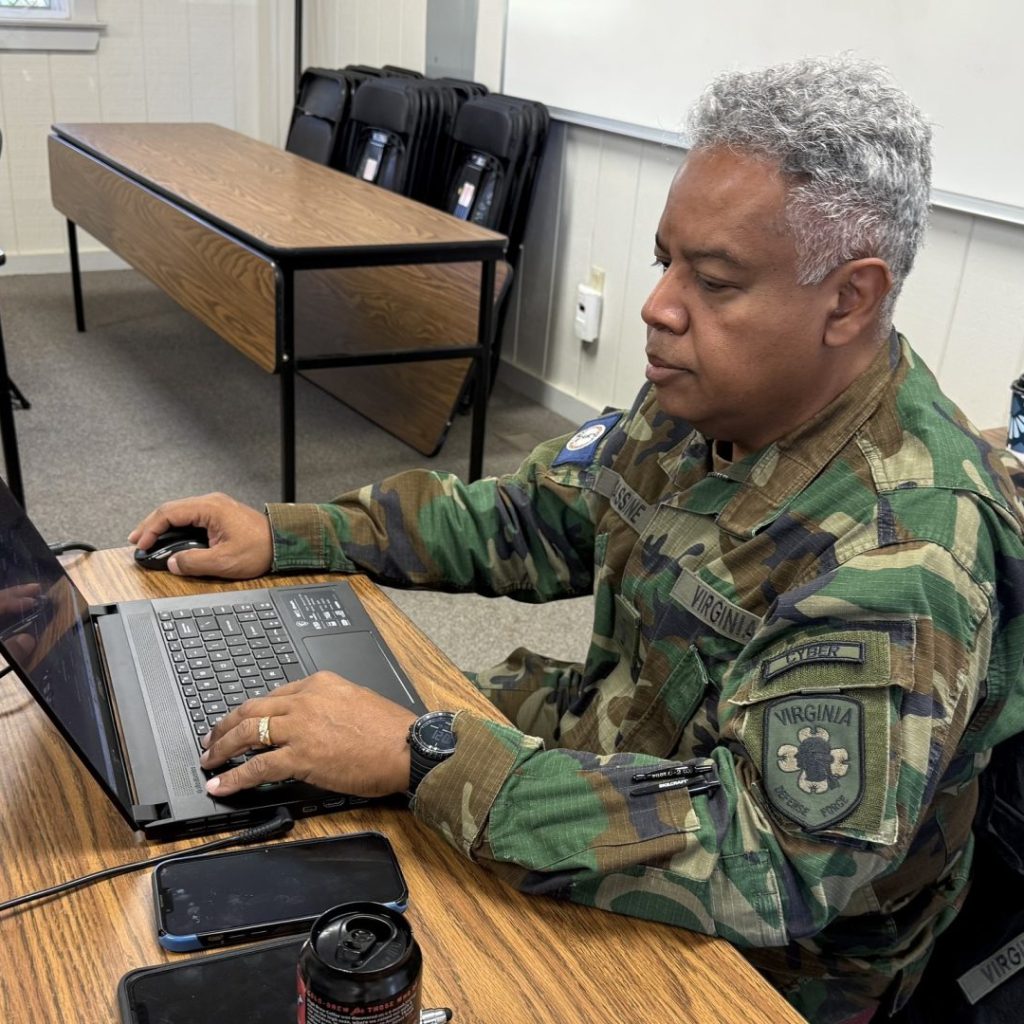
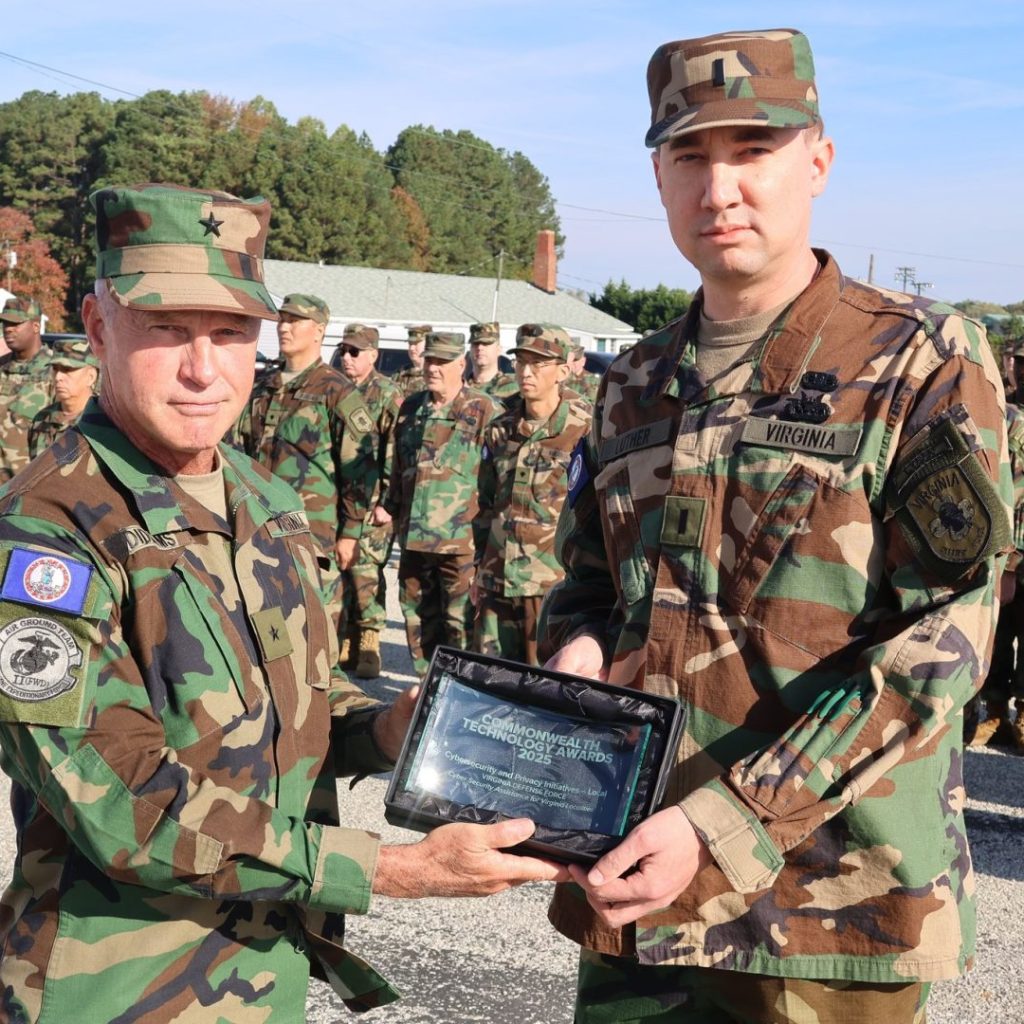
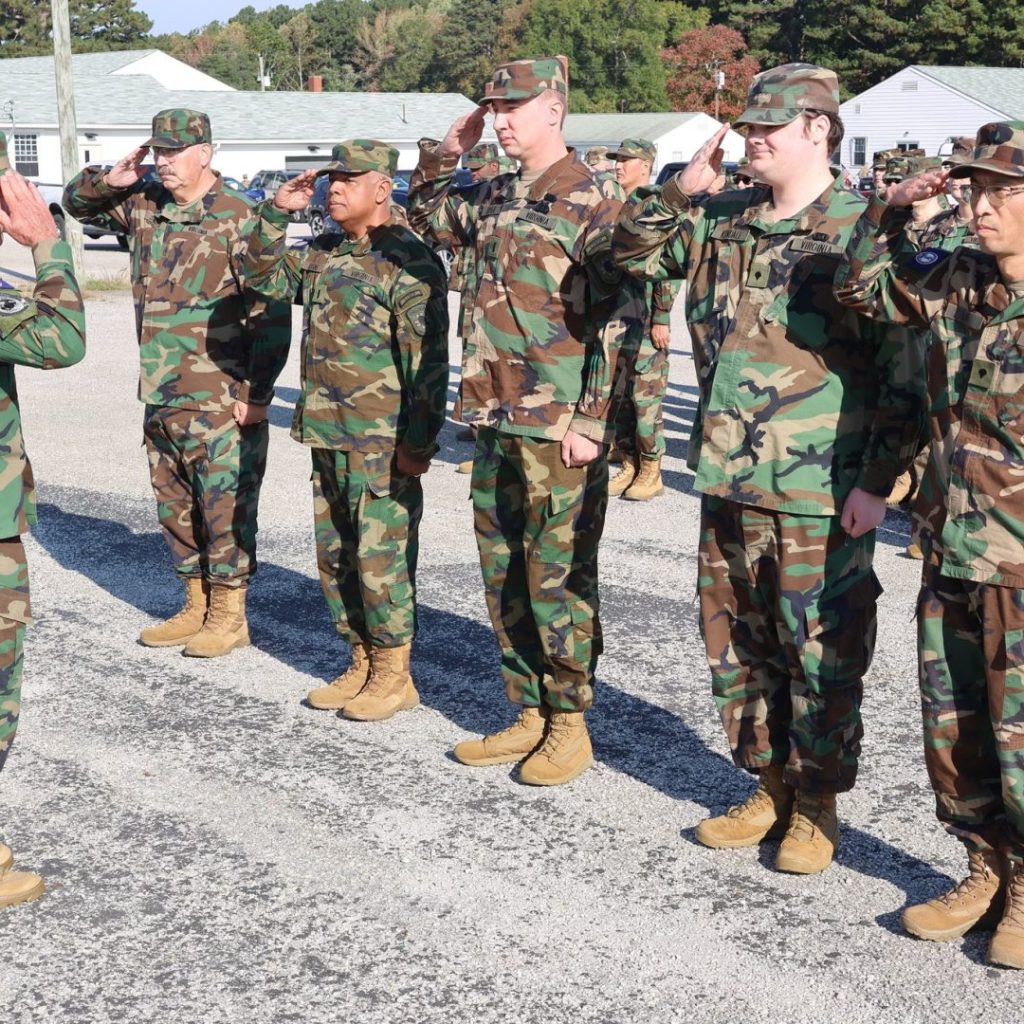
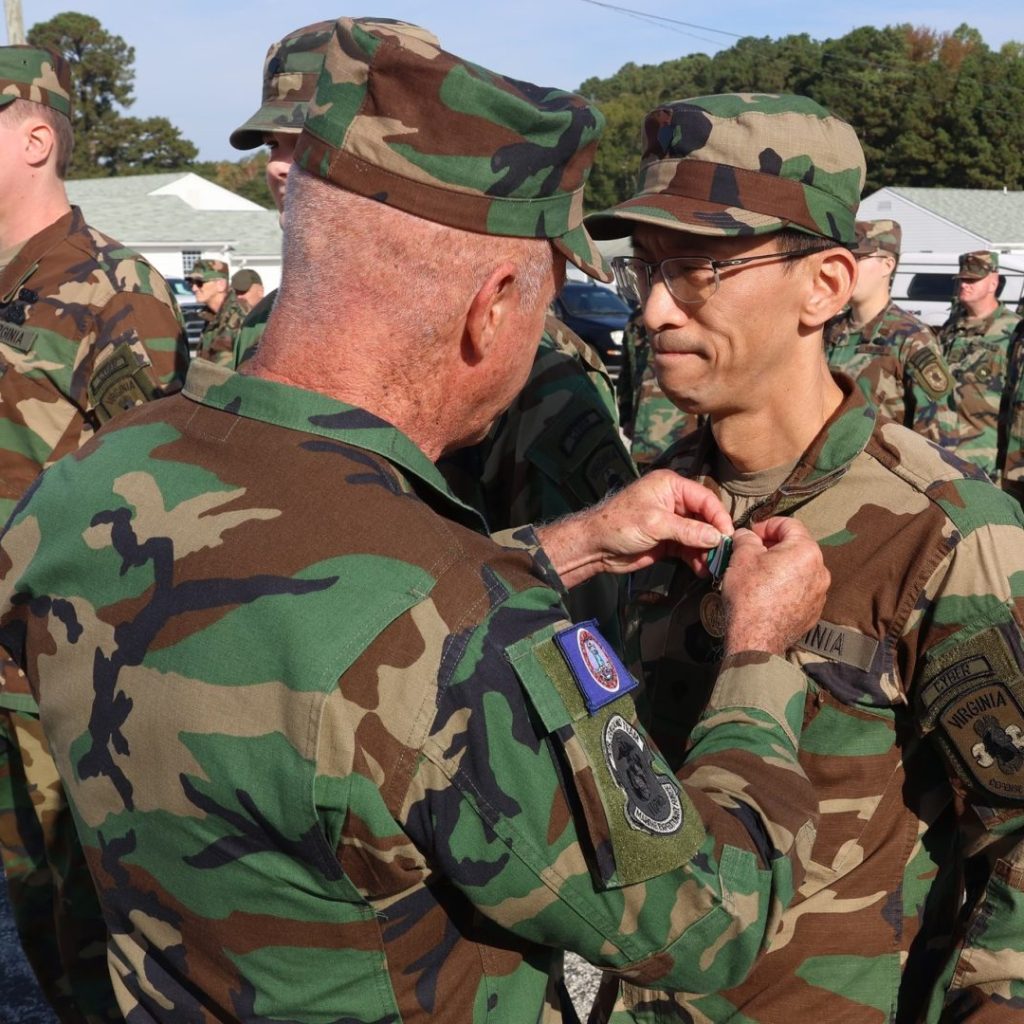
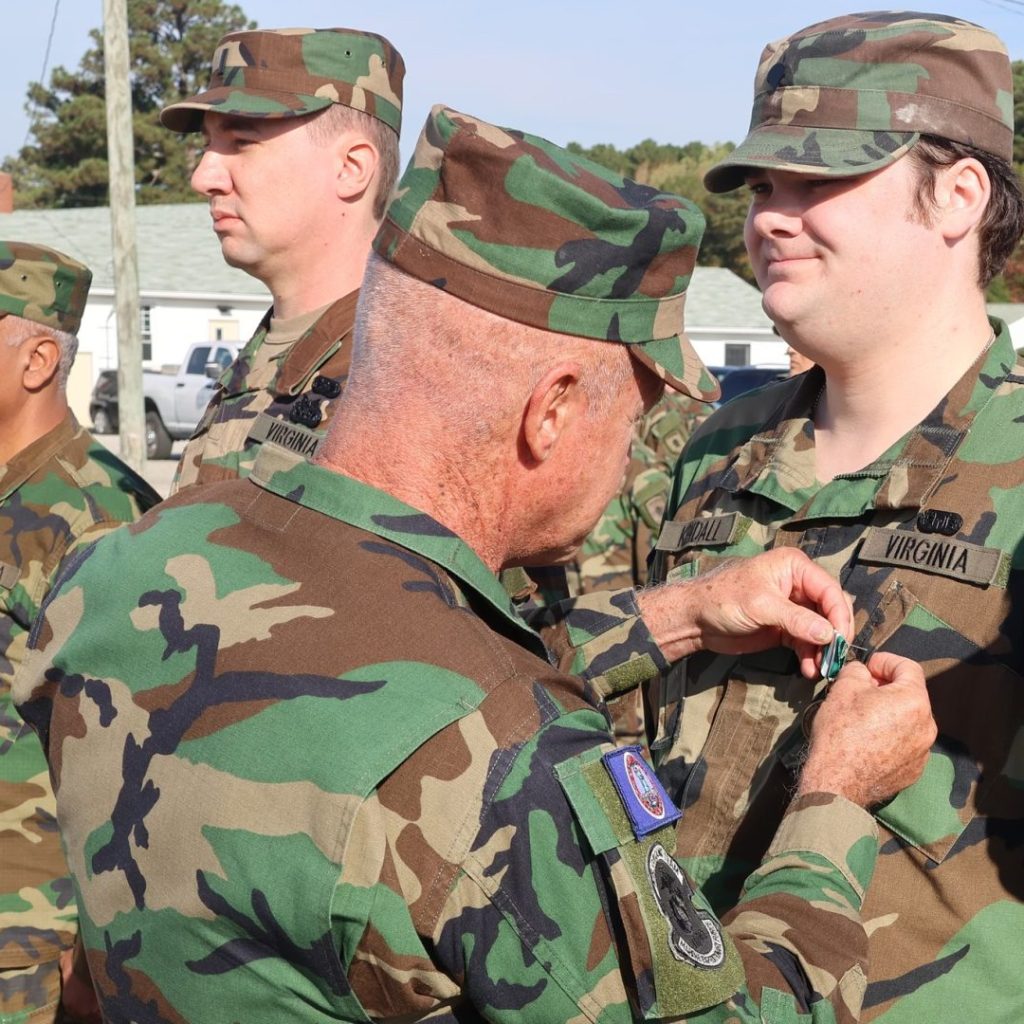
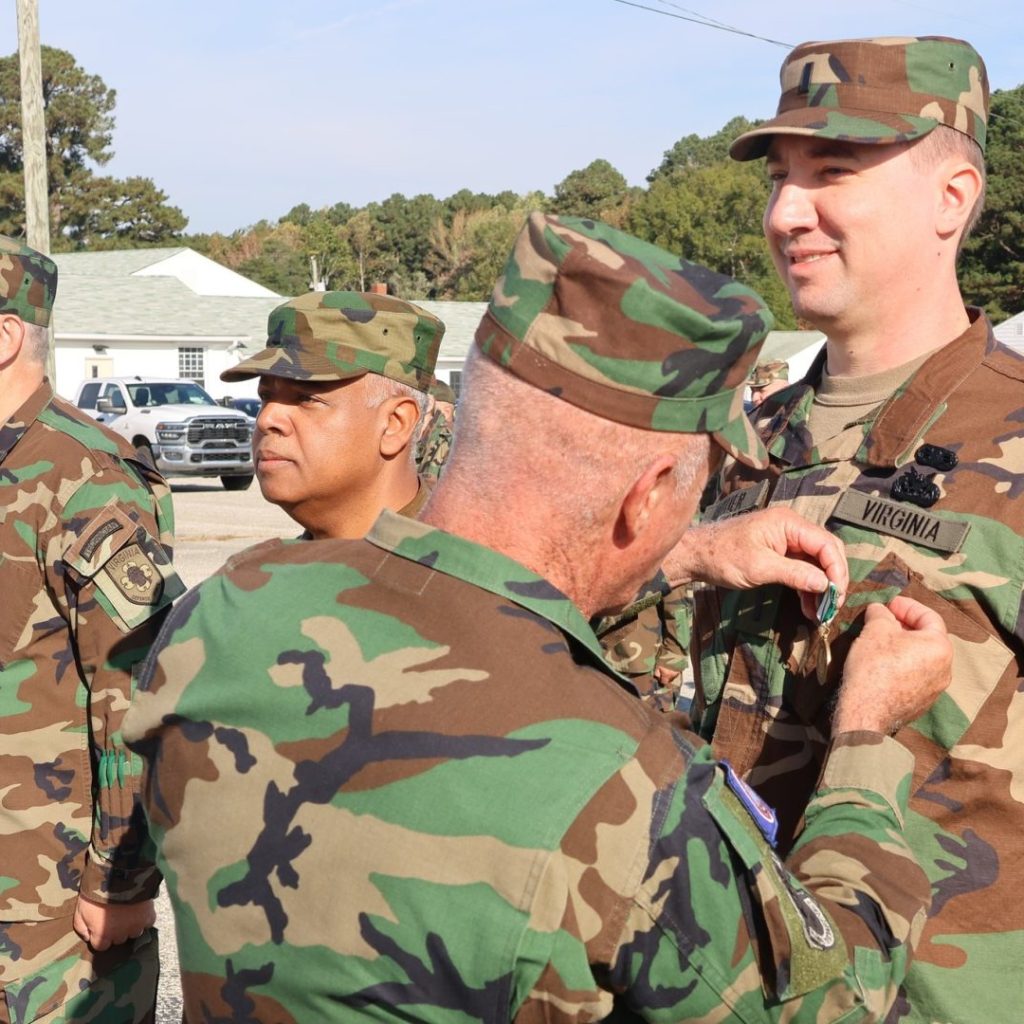
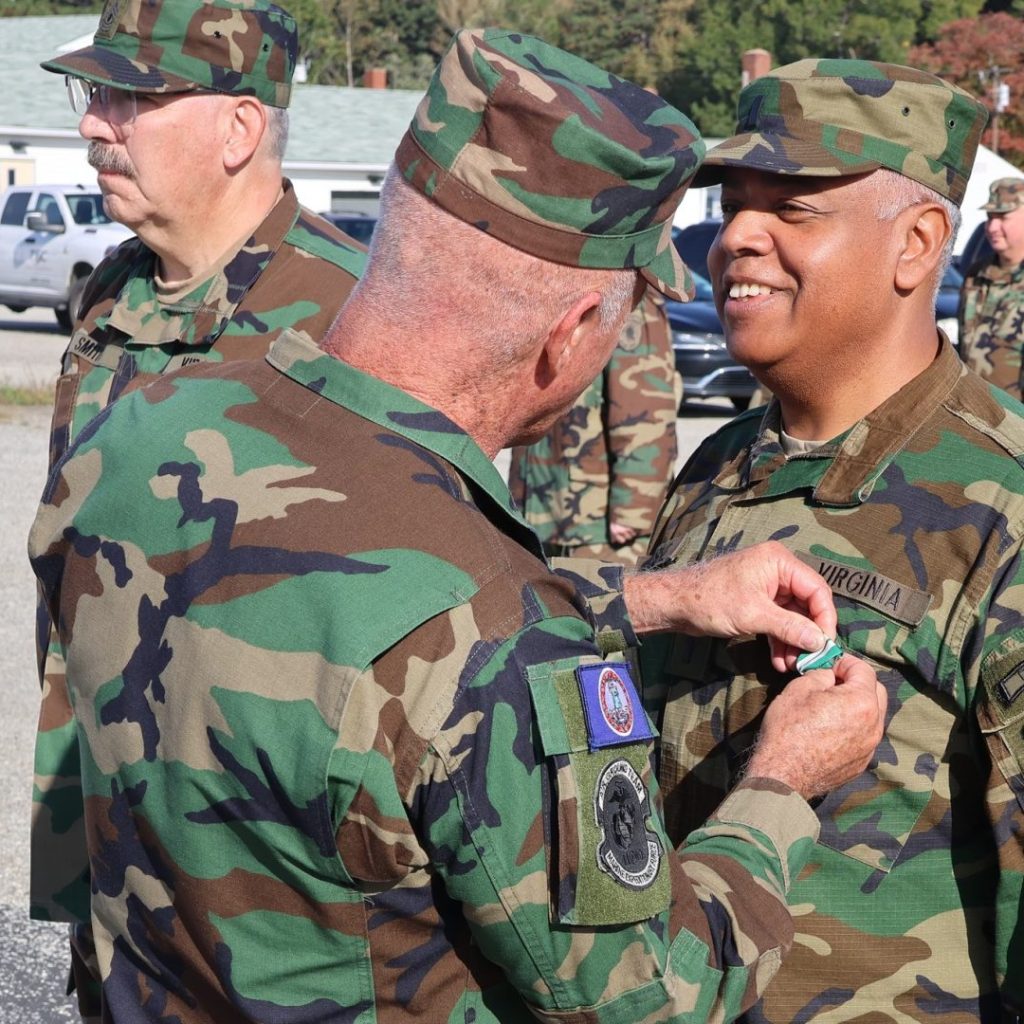
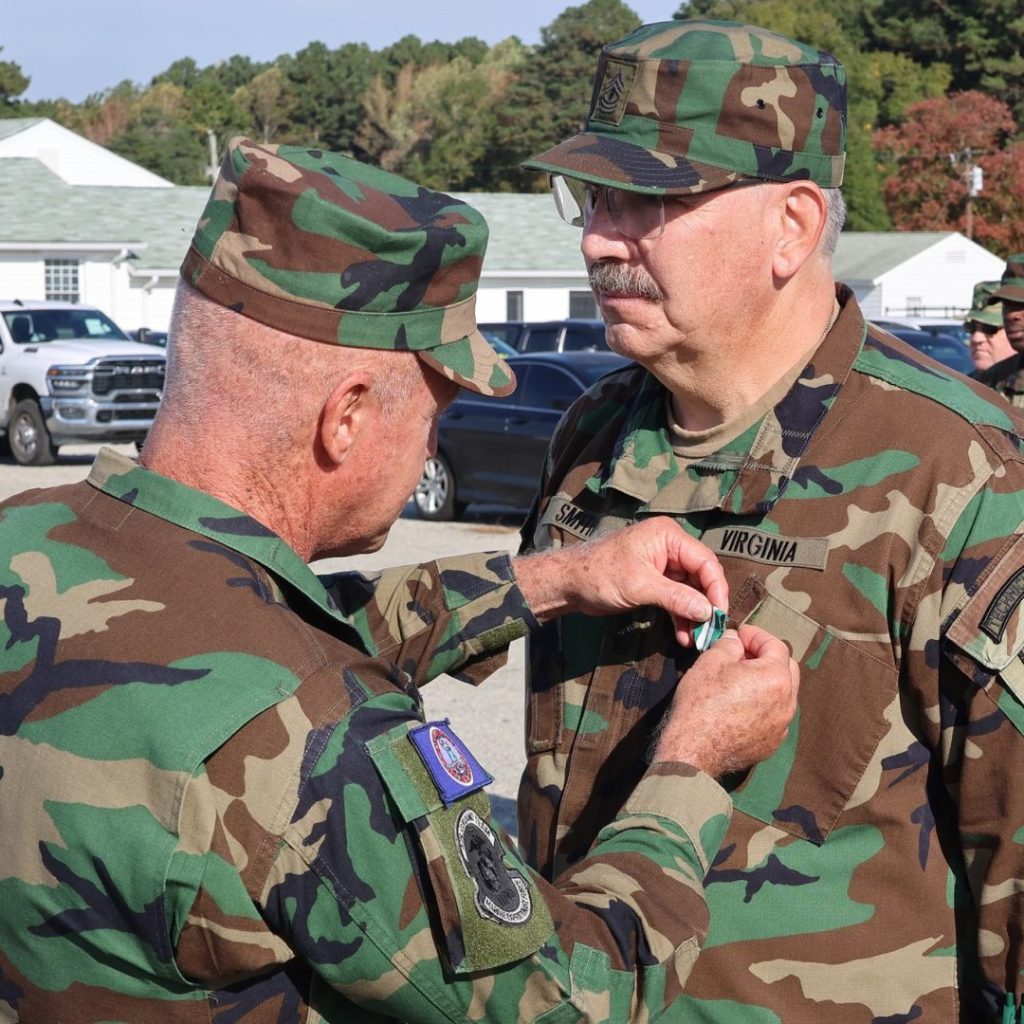
Sources: Virginia Defense Force – National Guard 91st Cyber Brigade – CSO – Virginia IT Agency – Virginia Defense Force – Virginia Defense Force – AP News

